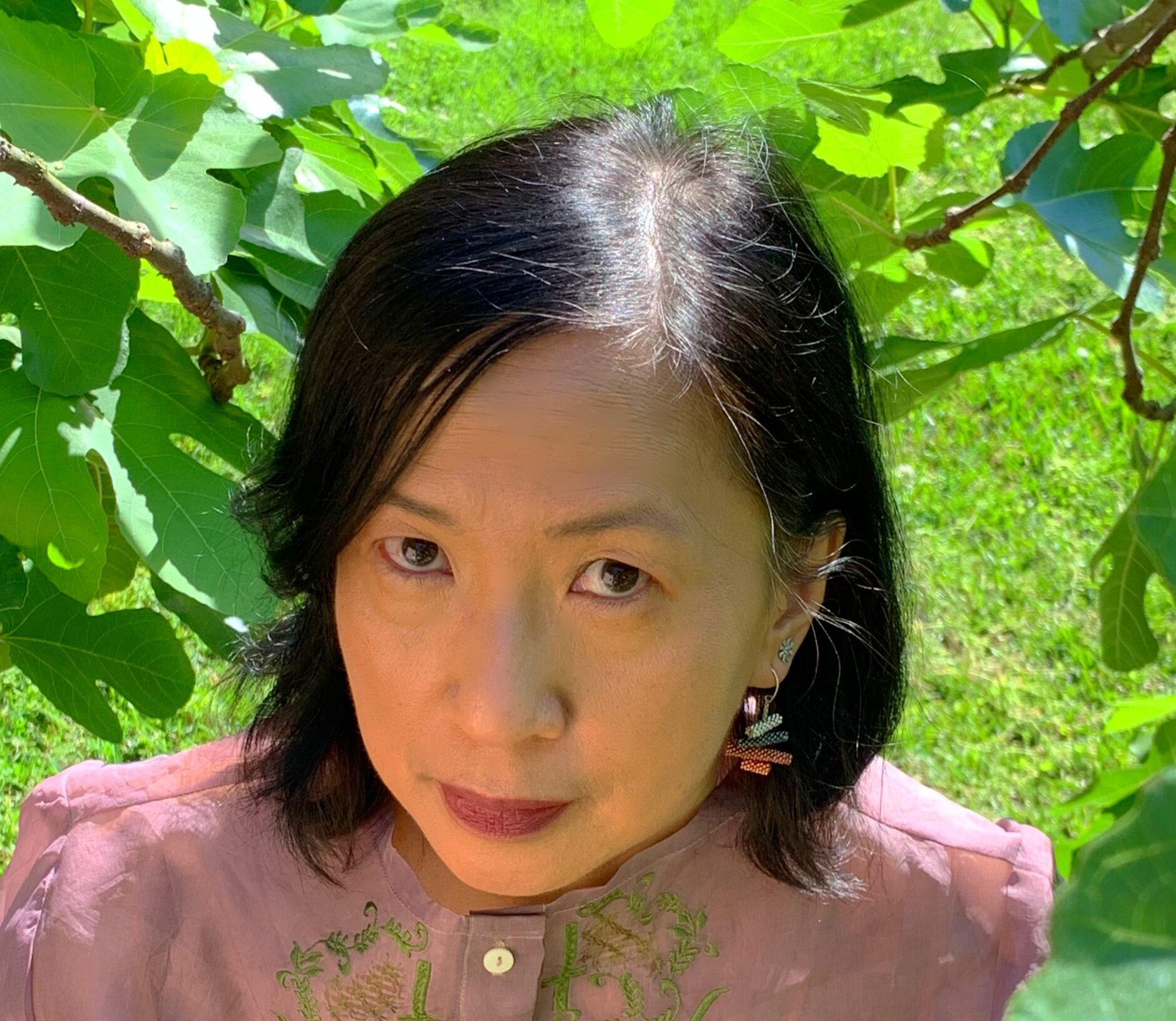A public square in every town, monuments
whitened in patches by lime and bird droppings.
Streets and bridges named after those who came
in galleons. They banished to the outskirts
shamans and native priestesses, then pressed
plow and yoke onto farmers’ backs. Next,
the building of churches and cathedrals:
fantasy of fountains and pulpits painted
with clouds of putti and gold. An altar
boy set the censer into its little dialectic
swing: forward and back, curling clouds
of incense smoke until it came to rest again.
It’s said the walls were set with argamasa, a paste
of mortar—powdered brick, sand, ground husks,
the whites of hundreds and hundreds of eggs.
The oldest of these still stand, down to their bell
towers: crumbling like sugar paste, somehow
more desirable in their surrender to time.
The footnotes we write, the margin notes, will say
we come to hate and love what history has made of us.
Luisa A. Igloria is the author of Maps for Migrants and Ghosts, The Buddha Wonders If She Is Having a Mid-Life Crisis, and twelve other books. She was appointed twentieth poet laureate of Virginia in 2020–22 and received a 2021 Poet Laureate Fellowship.




